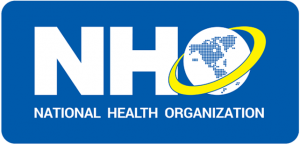In fact, AI-powered dynamic content personalization can drive up to 44% of conversion increase. Link quality is always better than the quantity of links you have. If you use tools like Ahrefs or Semrush, you can assess the potential link value of a site. And if searchers click through to those discussions, they might see your valuable insight and be more likely to seek out your content later on. Google encourages businesses to reply to both BHS Links positive and negative reviews.
Contents
To track your core web vitals and identify issues, you can use a free tool by Google called PageSpeed Insights (Google Analytics is limited in that regard). However, in general, it’s best to have dedicated writers and editors that will manage the process from start to finish for you. In addition to your home and product/service pages, you should also invest the time and resources into a robust blog. Podcast outreach is actually one of Respona’s use cases – we can help simplify the outreach process and increase your results tenfold. Even if the link does not have the “dofollow” tag, it’s set to be “dofollow” by default.
Whether searchers are using traditional search engines or AI-powered answer engines, on-page SEO best practices can improve your rankings and online visibility. After all, pages ranking well in search results appear more often in AI Overviews. Examples of on-site SEO efforts are creating and optimizing content according to search intent and streamlining your site navigation.
Key On-Page SEO Factors to Master
Of course, the link value might not be great since the type of link you get through blog comments is mostly a no-follow link. You may already know about improving your off-page SEO metrics by commenting on different blogs. But before you think it’s no longer worth it, let me tell you, it works. Well, just by using the power of high-quality, and in-depth long form content. Topic with case studies, detailed how to guides, long lists have more acceptance rate. If you are not using Quora then probably you are not effectively putting your efforts for your overall SEO.
A SEO favorite across the world, Semrush’s exceptional Backlink Analysis Tools provides access to the freshest database of over 43.0 trillion backlinks. With a combination of backlink audit, competitor analysis, and backlink gaps, it helps identify promising link-building opportunities with ease. While ticking off items from the off-page SEO checklist is up to you, doing it all by yourself is not feasible.
This section will explore the different off-page SEO ranking factors that all work together to improve your website’s standing from an off-site perspective. This will include established SEO practices like link building and things you may not have considered, like enhancing your brand’s presence. The key to successful off-page SEO is building high-quality, relevant backlinks from authoritative sources.
Including keywords in your URL can signal to Google what your page is about. And parts of your URL can appear in search results, meaning optimized URLs can help users understand what your page is about too. Half of the websites linked out to authority sites (like Oxford University). First, use an SEO tool like Semrush’s Backlink Analytics and its “Indexed pages” report to bring up the pages on your site with the most backlinks (a decent measure of authority). Plus, the search engine often chooses its own description to display in search results based on the specific search query. If you search for any competitive keyword, you’ll notice that the top-ranking pages almost all use that exact keyword in their title tag.
- Tools like Semrush, Ahrefs, Moz, Majestic, and BuzzSumo can be used for off-page SEO analysis and link building.
- Firstly, it allows you to tap into a new user that aligns with your target demographic.
- They first had to pick a topic that’s potentially link-driving once pitched to someone.
- Off-page SEO can seem complex, but understanding its role is essential for building authority and improving rankings.
- The most authoritative websites typically have diverse off-page signals from multiple high-quality sources.
Additionally, off-page SEO strategies help your website stand out in the competitive digital landscape. They increase visibility, build brand authority, and drive organic traffic. A strong off-page SEO presence can enhance your online reputation, foster customer trust, and ultimately contribute to business growth.
For example, if top-notch backlinks support your website, it has a better shot at popping up in search engine results. Off-page SEO is about building your site’s E-E-A-T (Experience, Expertise, Authority, Trustworthiness) through backlinks, mentions, reviews, and recommendations. When your brand gets acknowledged by another site, it indicates to search engines that your site is noteworthy and relevant. Proper on-page and technical optimization will provide clear quality signals to Google and other search engines, and your site will be rewarded accordingly. Think about ways you can repurpose your existing content into different formats. For example, you can turn popular blogs into videos to reach new audiences and attract backlinks from different platforms.


